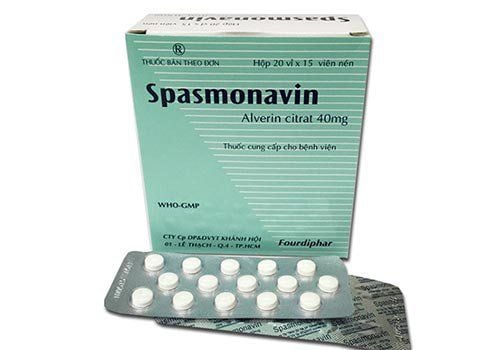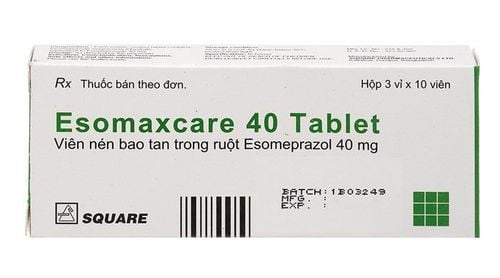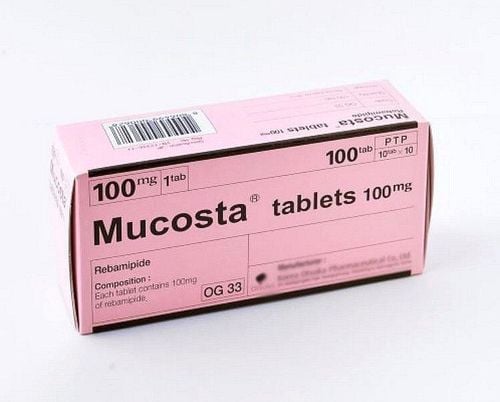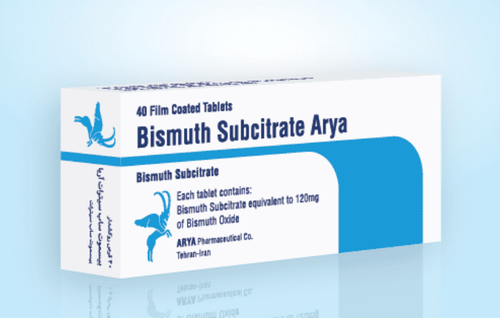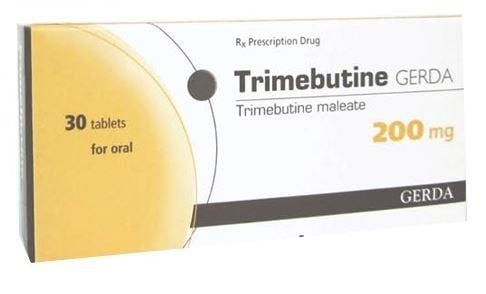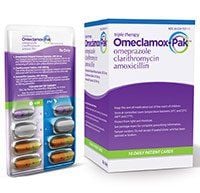This is an automatically translated article.
Agiremid medicine 100mg is used to treat stomach ulcers effectively. Agiremid 100 mg also helps in the treatment of gastric mucosal lesions in acute severe conditions of acute gastritis and chronic gastritis. To better understand Agiremid 100 mg, let's learn more in the article below.
1. What is Agiremid 100mg?
Agiremid 100 is an ETC drug used in the treatment of peptic ulcers and gastric mucosal lesions (erosion, bleeding, redness and edema).
Drug Agiremid 100 mg is made into tablets with the main ingredient is Rebamipide - 100 mg. Other excipients include: Lactose Monohydrate, Corn Starch, Croscarmellose Sodium, Maltodextrin, Polysorbat 80, Microcrystallin Cellulose 101, Colloidal Silicon Dioxide, Magnesium Stearate just enough for 1 tablet.
Rebamipide, as a gastroprotective agent, has the ability to enhance mucus secretion, stimulate prostaglandins in the gastric mucosa which improves both the speed and quality of ulcer healing, thus maintaining the integrity of the ulcer. integrity of gastric parietal cells during injury. Rebamipide also protects the gastric mucosa against acute damage by many other toxic and ulcerative factors. It also reduces the activity of neutrophils and anti-inflammatory cells stimulated by non-steroidal anti-inflammatory drugs (NSAIDs) and/or H. pylori. Therefore, rebamipide can be used in patients who are taking NSAIDs or are infected with H. pylori. Suppression of the immune inflammatory response by rebamipide to H. pylori-infected patients prevents the development of gastritis, peptic ulcer disease, and disease recurrence and possibly gastric cancer. . In addition, rebamipide also enhances the eradication of H. Pylori in standard treatment regimens.
2. What are the uses and effects of Agiremid?
The drug has outstanding use in the treatment of the following diseases:
Treatment of stomach ulcers. Treatment of gastric mucosal lesions (eg, erosion, bleeding, redness and edema) in acute severe conditions of acute gastritis and chronic gastritis. Undesirable effects of Rebamipide contained in Agiremid 100 will be less likely. Side effects are also usually mild and cannot be corrected by dose adjustment. The most common are effects on the gastrointestinal system such as constipation, abdominal distension, diarrhea, nausea and vomiting.
Rare adverse reactions of clinical significance:
Shock and anaphylaxis: Shock and anaphylactic reactions may occur. The patient should be closely monitored. If any abnormality occurs, the drug should be discontinued and appropriate treatment measures instituted. Leukopenia (incidence < 0.1%) and thrombocytopenia: Leukopenia and thrombocytopenia may occur. The patient should be closely monitored. If any abnormality occurs, the drug should be discontinued and appropriate treatment measures instituted. Liver dysfunction (incidence < 0.1%) and jaundice: Liver dysfunction and jaundice, as indicated by increased levels of AST (GOT), ALT (GPT), γ-GTP, and alkaline phosphatase, have been reported in patients receiving rebamipide. The patient should be closely monitored. If there are abnormal findings on the test, the drug should be stopped and appropriate treatment measures instituted. Long-term patients should be monitored periodically for any signs or symptoms of elevated liver enzymes, decreased white blood cell counts, and/or platelet counts. Other adverse reactions:
Hypersensitivity: Rash, pruritus, Eczema-like rash and urticaria. Neuropsychiatric: Numbness, dizziness and drowsiness. Gastrointestinal: Constipation, feeling of bloating, nausea, vomiting, heartburn, abdominal pain, taste abnormalities and dry mouth. Liver: Increased levels of AST (GOT), ALT (GPT), γ-GTP and alkaline Phosphatase. Blood: Leukopenia, granulocytopenia and thrombocytopenia. Other side effects: Menstrual irregularities, increased blood urea nitrogen (BUN) levels, edema, swollen and painful breasts, enlarged breasts in men, lactation, palpitations, fever, facial flushing, numbness of the tongue cough and respiratory failure. Stop using the drug and immediately notify the doctor about any unwanted effects encountered when using the drug.
3. How to use Agiremid 100mg effectively
3.1. Usage The usual dose of rebamipide for adults is 100 mg (1 rebamipide 100mg tablet) x 3 times/day by mouth in the morning, evening and at bedtime. Treatment of gastric mucosal lesions (eg, erosion, bleeding, redness and edema) in acute gastritis and exacerbations of chronic gastritis
The usual adult dose of rebamipide is 100 mg (1 rebamipide 100mg tablet) x 3 times/day orally.
3.2. Treatment of an overdose using Agiremid 100 mg There is no specific information on overdose. However, you still have to notify your doctor and immediately go to medical facilities when you notice unusual reactions during the time of taking the drug to receive the most appropriate treatment.
3.3. What to do when you miss a dose of Agiremid 100 mg You should take the missed dose as soon as you remember it. If it is almost time for your next dose, skip the missed dose and continue taking it at the prescribed time. Do not take 2 doses at the same time. Do not change the dose or stop the drug.
4. Note when you use the drug
Use in the elderly: Special care should be taken in elderly patients to minimize the risk of gastrointestinal disorders, since physiologically, elderly patients are generally more susceptible to this drug compared with younger patients.
Use in children: Safety in children has not been established (clinical experience in children is incomplete).
There are no controlled studies on the effects of the drug while driving. Dizziness or drowsiness has been reported in some patients while taking the drug, such patients should exercise caution when driving a vehicle or operating machinery.
Pregnancy: Rebamipide should be used in women who are pregnant or likely to become pregnant only if the potential benefit of treatment is thought to outweigh any possible risk (still unconfirmed). safety of this drug in pregnant women).
Agiremid 100 should be stored below 30°C, protected from moisture and light. Medicines need to be stored properly to keep their value.
Above is the important information about the drug Agiremid. Hopefully with the above sharing will bring you good suggestions in the process of taking medicine.
Please dial HOTLINE for more information or register for an appointment HERE. Download MyVinmec app to make appointments faster and to manage your bookings easily.




